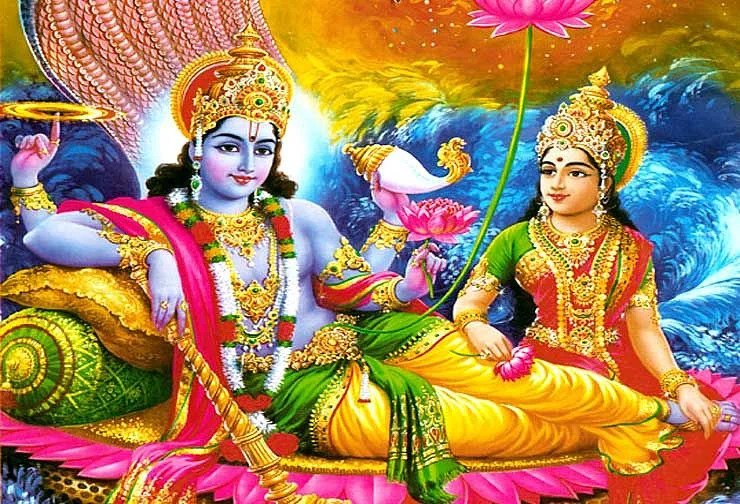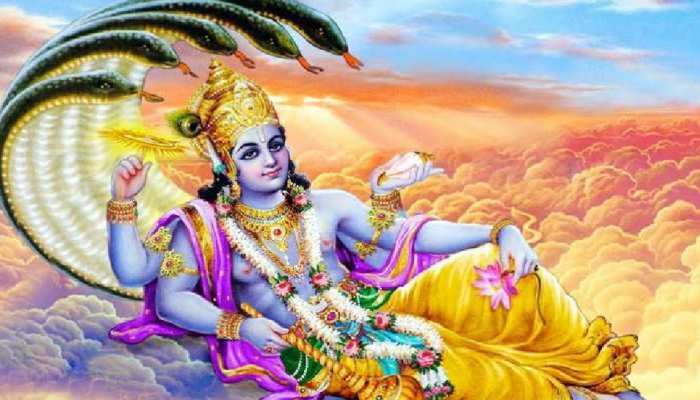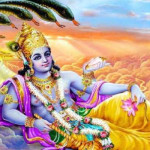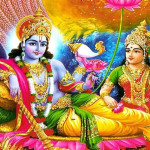Nirjala Ekadashi
Do’s and Dont’s For Fasting – Please observe Ekadasi fast to grow in spiritual life. Chant 25 rounds (25×108 number) of Hare Krishna Mahamantra.
हरे कृष्ण हरे कृष्ण कृष्ण कृष्ण हरे हरे।
हरे राम हरे राम राम राम हरे हरे।।
Level of fasting
Level 1 : No food no water
Level 2 : Only water
Level 3 : Only liquids like milk, butter milk, fruit juices etc
Level 4 : Only uncooked solids like fruits & vegetables & liquids
Level 5 : Cooked foods (excluding grains and pulses) such as singhara atta, kuttu atta, sabudana etc. Food has to be cooked in sunflower oil or ghee, not soyabean oil. Sendha namak should be used, None of the masalas to be used, unless it is grounded at home.
Fast Breaking Time (Paran Time) – Next day on June 19, 2024 – Between 05:23am to 07:30am (For Delhi/ NCR – India, for other regions please check nearest Iskcon Temple/Centre).
Discription – Once Bhimasena, the younger brother of Maharaja Yudhisthira, asked the great sage Shrila Vyasadeva, the grandfather of the Pandavas, if it is possible to return to the spiritual world without having observed all the rules and regulations of the Ekadasi fasts.
Bhimasena then spoke as follows, “Oh greatly intelligent and learned grandfather, my brother Yudhisthira, my dear mother Kunti, and my beloved wife Draupadi, as well as Arjuna, Nakula and Sahadeva, fast completely on each Ekadasi and strictly follow all the rules, guidelines and regulative injunctions of that sacred day.
Being very religious, they always tell me that I should also fast on that day too.
But, Oh learned grandfather, I tell them that I cannot live without eating, because as the son of Vayudeva – Samanaprana, (the digestive air) hunger is unbearable to me.I can give widely in charity and worship Lord Keshava properly with all manner of wonderful upacharas (items), but I cannot be asked to fast on Ekadasi.
Please tell me how I can obtain the same merits result without fasting.”
Hearing these words, the grandsire of Bhima, Srila Vyasadeva said, “If you want to go to the heavenly planets and avoid the hellish planets, you should indeed observe a fast on both the light and dark Ekadasis.”
Bhima replied, “Oh great saintly intelligent grandfather, please listen to my plea.
Oh greatest of munis, since I cannot live if I eat only once in a day, how can I possibly live if I fast completely?
Within my stomach burns a special fire named Vrika, the fire of digestion.
Only when I eat to my full satisfaction does the fire in my stomach become satisfied. Oh great sage, I might possibly be able to fast only once, so I beg that you tell me of an Ekadasi that is worthy of my fasting and that includes all other Ekadasis. I shall faithfully observe that fast and hopefully still become eligible for liberation’s release.”
Shrila Vyasadeva replied, Oh king, you have heard from me about the various kinds of occupational duties, such as elaborate Vedic ceremonies and pujas.
In the Kali-yuga, however, no one will be able to observe all these occupational & functional duties properly.
I shall therefore tell you how, at practically no expense, one can endure some small austerity and achieve the greatest benefit and resultant happiness.
The essence of what is written in the Vedic literatures known as the Puranas is that one should not eat on either the dark or light fortnight Ekadasis.”
As stated in Srimad Bhagavatam (Mahabhagavat Puranam) 12:13:12 and 15, the Bhagavat Puranam is itself the essence or cream of all Vedanta philosophy (sara-vedanta-saram), and the Srimad Bhagavatam’s unequivocal message is that of full surrender to Lord Sri Krishna and the rendering of loving devotional service to Him.
Observing Ekadasi strictly is a great aid in that process, and here Shrila Vyasadeva is simply stressing to Bhima the importance of the Ekadasi vratam.
“One who fasts on Ekadasis saved from going to the hellish planets.”
Hearing Shrila Vyasadeva’s words, the son of Vayu, Bhimasena, the strongest of all warriors, became frightened and began to shake like a leaf on a banyan tree in a strong wind. The frightened Bhimasena then said, “Oh grandfather, what should I do? I am completely unable and ill equipped to fast twice in a month throughout the year! Please tell me of the one fasting day that will bestow the greatest benefit upon me!”
Vyasadeva replied, “Without drinking even water, you should fast on the Ekadasi that occurs during the light fortnight of the month of Jyeshtha (May-June) when the sun travels in the sign of Taurus (Vrishabh) and Gemini (Mithun),
According to learned personalities, on this day one may bathe and perform Achamana for pratiprokshana purification.
But while performing Achamana one may drink only that amount of water equal to a drop of gold, or that amount it takes to immerse a single mustard seed.
Only this amount of water should be placed in the right palm for sipping, which one should form to resemble a cow’s ear.
If one drinks more water than this, he might as well have drunk wine despite the soaring heat of summer (in the northern hemisphere and cold in the southern hemisphere).
One must certainly not eat anything, for if he does so he breaks his fast.
This rigid fast is in effect from sunrise on the Ekadasi day to sunrise on the Dwadashi day.
If a person endeavours to observe this great fast very strictly, he easily achieves the result of observing all twenty-four other Ekadasi fasts throughout the entire year.
On Dwadashi the devotee should bathe early in the morning.
Then, according to the prescribed rules, guidelines and regulative injunctions, and of course depending on his ability, he should give some gold and water to worthy brahmanas.
Finally, he should cheerfully honour prasadam with a branmana.
Oh Bhimasena, one who can fast on this special Ekadasi in this manner reaps the benefit of having fasted on every Ekadasi during the year.
There is no doubt of this, nor should there be.
Oh Bhima, now hear the specific merit one gets by fasting on this Ekadasi.
The Supreme Lord Keshava, who holds a conch, discus, club and lotus, personally told me, `Everyone should take shelter of Me and follow My instructions.’
Then He told me that one who fasts on this Ekadasi, without taking even drinking water or eating, becomes free of all sinful reactions, and that one who observes the difficult nirjalafast on Jyeshtha-shukla Ekadasi truly reaps the benefit of all other Ekadasi fasts.
“Oh Bhimasena, in the Kali-yuga, the age of quarrel and hypocrisy, when all the principles of the Vedas will have been destroyed or greatly minimised, and when there will be no proper charity or observance of the ancient Vedik principles and ceremonies, how will there be any means of purifying the self?
But there is the opportunity to fast on Ekadasi and become free of all one’s past sins.
“Oh son of Vayu, what more can I say to you?
You should not eat during the Ekadasis that occur during the dark and light fortnights, and you should even give up drinking water (nir = no jala= water) on the particularly auspicious Ekadasi day of Jyeshtha-shukla Ekadasi.
Oh Vrikodara (voracious eater), whoever fasts on this Ekadasi receives the merits of bathing in all the places of pilgrimage, giving all kinds of charities to worthy persons, and fasting on all the dark and light Ekadasis throughout the year, in one go.
Of this there is no doubt.
Oh tiger among men, whoever fasts on this Ekadasi truly becomes a great person and achieves all manner of opulence and wealth, grains, strength, and health.
And at the fearful moment of death, the terrible Yamadutas, whose complexions are yellow and black and who brandish huge maces and twirl mystic pasha ropes in the air for binding their victims, will refuse to approach him.
Rather, such a faithful soul will at once be taken to the supreme abode of Lord Vishnu by the Vishnu-dutas, whose transcendentally beautiful forms are clothed in gorgeous yellowish garments and who each hold a disk, club, conch and lotus in their four hands, resembling Lord Vishnu.
It is to gain all these benefits that one should certainly fast on this very auspicious and important Ekadasi, even from water.”
When the other Pandavas heard about the benefits to be gained by following Jyeshtha-shukla Ekadasi, they resolved to observe it exactly as their grandfather Srila Vyasadeva had explained it to their brother, Bhimasena.
All the Pandavas observed it by refraining from eating or drinking anything, and thus this day is also known as Pandava Nirjala Dvadashi (technically it is a Maha-Dvadashi).
Shrila Vyasadeva continued, Oh Bhimasen, therefore you should observe this important fast to remove all your past sinful reactions.
You should pray to the Supreme Personality of Godhead, Lord Sri Krishna in this way making your sankalpa declaration, `Oh Lord of all the devas (demigods), Oh Supreme Personality of Godhead, today I shall observe Ekadasi without taking any water.
Oh unlimited Anantadev, I shall break fast on the next day, Dwadashi.’
Thereafter, to remove all his sins, the devotee should honour this Ekadasi fast with full faith in the Lord and with full control over his senses.
Whether his sins are equal in volume to Mount Sumeru or to Mandarachala Hill, if he or she observes this Ekadasi, the sins that have been accumulated all become nullified and are burned to ashes.
Such is the great power of this Ekadasi.
Oh best of human beings, although a person should also give water and cows in charity during this Ekadasi, if for some reason or other he cannot, then he should give a qualified brahmana some cloth or a pot filled with water.
Indeed, the merit achieved by giving water alone equals that gained by giving gold ten million times a day.
“Oh Bhima, Lord Sri Krishna has said that whoever observes this Ekadasi should take a Holy bath, give charity to a worthy person, chant the Lord’s Holy names on a japa-mala, and perform some kind of recommended sacrifice, for by doing these things on this day one receives imperishable benefits.
There is no need to perform any other kind of religious duty.
Observance of this Ekadasi fast alone promotes one to the supreme abode of Sri Vishnu.
Oh best of the Kurus, if one donates gold, cloth, or anything else on this day, the merit one obtains is imperishable.
“Remember, whosoever eats any grains on Ekadasi becomes contaminated by sin and verily eats only sin.
In effect, he has already become a dog-eater, and after death he suffers a hellish existence.
But he who observes this sacred Jyeshtha-shukla Ekadasi and gives something in charity certainly achieves liberation from the cycle of repeated birth and death and attains to the supreme abode.
Observing this Ekadasi, which is merged with Dwadashi, frees one from the horrible sin of killing a brahmana, drinking liquor and wine, becoming envious of one’s spiritual master and ignoring his instructions, and continually telling lies.
“Furthermore, Oh best of beings (Jivottama), any man or woman who observes this fast properly and worships the Supreme Lord Jalshayi (He who sleeps on the water), and who on the next day satisfies a qualified brahmana with nice sweets and a donation of cows and money – such a person certainly pleases the Supreme Lord Vasudeva, so much so that one hundred previous generations in his family undoubtedly go to the Supreme Lord’s abode, even though they may have been very sinful, of bad character, and guilty of suicide, etc.
Indeed, one who observes this amazing Ekadasi rides on a glorious celestial airplane (vimana) to the Lord’s abode.
“One who on this day gives a brahmana a waterpot, an umbrella, or shoes surely goes to the heavenly planets.
Indeed, he who simply hears these glories also attains to the transcendental abode of the Supreme Lord, Shri Vishnu.
Whoever performs the Shraddha ceremony to the forefathers on the dark-moon day called amavasya, particularly if it occurs at the time of a solar eclipse undoubtedly achieves great merit.
But this same merit is achieved by him who simply hears this sacred narration – so powerful and so dear to the Lord is this Ekadasi.
One should clean his teeth properly and, without eating or drinking, observe this Ekadasi to please the Supreme Lord, Keshava.
On the day after Ekadasi one should worship the Supreme Personality of Godhead in His form as Trivikrama by offering Him water, flowers, incense, and a brightly burning lamp.
Then the devotee should pray from the heart, `Oh God of gods, Oh deliverer of everyone, Oh Hrishikesha, master of the senses, kindly bestow upon me the gift of liberation, though I can offer you nothing greater than this humble pot filled with water.’
Then the devotee should donate the waterpot to a brahmana.
“Oh Bhimasena, after this Ekadasi fast and donating the recommended items according to his ability, the devotee should feed brahmanas and thereafter honour prasadam silently.”
Shrila Vyasadeva concluded, “I strongly urge you to fast on this auspicious, purifying, sin-devouring Dwadashi in just the way I have outlined.
Thus you will be completely freed of all sins and reach the supreme abode.”
Thus ends the narration of the glories of Jyeshtha-shukla Ekadasi, or Bhimaseni-nirjala Ekadasi, from the Brahma-vaivarta Pura












